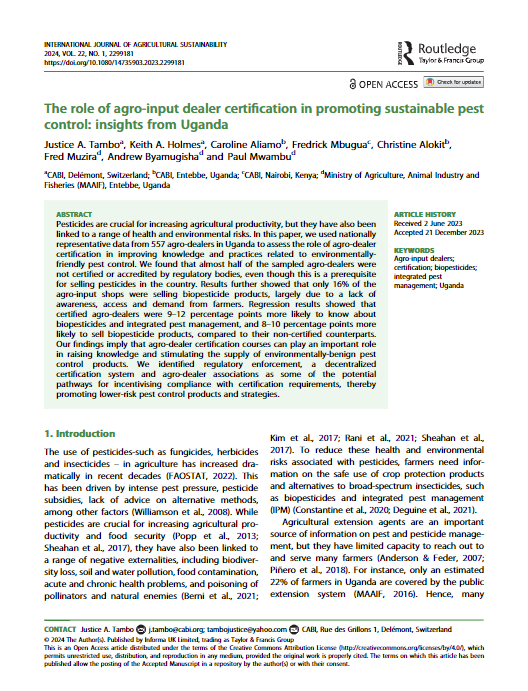The role of agro-input dealer certification in promoting sustainable pest control: insights from Uganda

Pesticides are crucial for increasing agricultural productivity, but they have also been linked to a range of health and environmental risks. In this paper, we used nationally representative data from 557 agro-dealers in Uganda to assess the role of agro-dealer certification in improving knowledge and practices related to environmentally-friendly pest control. We found that almost half of the sampled agro-dealers were not certified or accredited by regulatory bodies, even though this is a prerequisite for selling pesticides in the country. Results further showed that only 16% of the agro-input shops were selling biopesticide products, largely due to a lack of awareness, access and demand from farmers. Regression results showed that certified agro-dealers were 9–12 percentage points more likely to know about biopesticides and integrated pest management, and 8–10 percentage points more likely to sell biopesticide products, compared to their non-certified counterparts. Our findings imply that agro-dealer certification courses can play an important role in raising knowledge and stimulating the supply of environmentally-benign pest control products. We identified regulatory enforcement, a decentralized certification system and agro-dealer associations as some of the potential pathways for incentivising compliance with certification requirements, thereby promoting lower-risk pest control products and strategies.